What They Teach You at Harvard Business School: The Internationally-Bestselling Business Classic
£9.40£10.40 (-10%)
‘For anyone thinking of doing an MBA, or indeed anyone who wants to understand how the corporate elite are moulded, this is a must read’ Luke Johnson, British entrepreneur
The internationally best-selling business classic that reveals what it’s really like to study an MBA at one of the most prestigious institutions in the world.
Philip Delves Broughton quit his position as New York correspondent for The Daily Telegraph to take his place on one of the most-coveted and exclusive courses in the world – an MBA at Harvard Business School – to acquire the wisdom reserved for the world’s global elite. And what he learns is truly jaw-dropping.
From his first class to graduation – encompassing the guest lectures, the Apprentice-style tasks, the booze-luge, the burnouts and the high flyers – Delves Broughton divulges the advice, wisdom and folly he found whilst studying at the most prestigious business school in the world.
‘Anyone considering enrolling will find this an insightful portrait of Harvard Business School life’ Economist
‘Very funny. An excellent book’ Wall Street Journal
Read more
Additional information
| Publisher | 1st edition (1 July 2010), Penguin |
|---|---|
| Language | English |
| Paperback | 304 pages |
| ISBN-10 | 9780141046488 |
| ISBN-13 | 978-0141046488 |
| Dimensions | 12.9 x 1.8 x 19.8 cm |

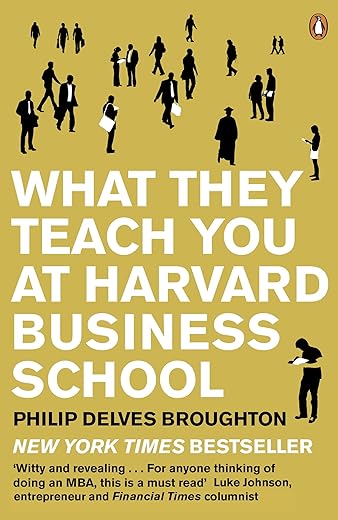


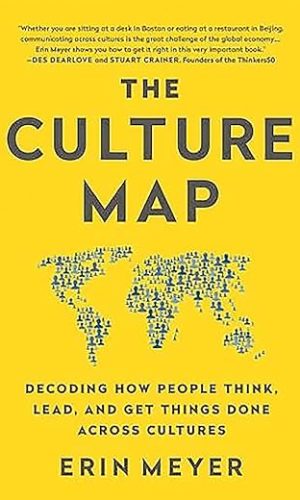
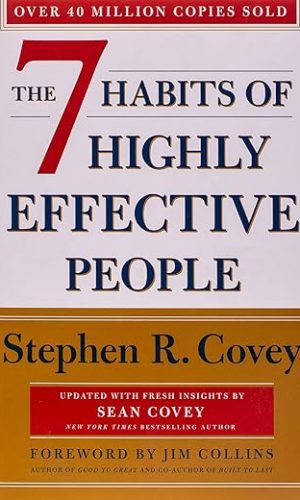
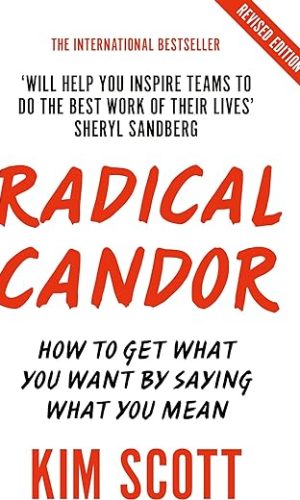

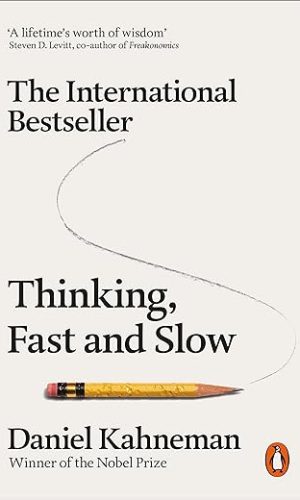

by Mr. C
I bought this book after browsing the few reviews of it that were on the Amazon site.
As someone who finds many business books rather dull and not a lot fun to read I was pleased to find this one was bordering on being a “page-turner”.
PDB is an excellent (if somewhat self-deprecating) writer and he makes his tale of two years at HBS very readable. There were quite a few times when I found myself laughing out loud at some of the amusing instances he recounts.
PDB asks some very good questions about HBS’s teaching and the people it has turned out – George W Bush being the most notable. He asks if HBS is so good then why were so many of its alumni playing such key parts in running much of the developed world’s financial system at the time of the financial meltdown in 2008. He further asks why did HBS itself not even see the crisis coming. More crucially he asks why have none of these elite who were running the show been held accountable for their part in what happened. There are some notable HBS alumni who have been held accountable for other financial crimes. Notable among these is Jeffrey Skilling who graduated in the top 5% of his 1979 class as a Baker Scholar. He went on to join McKinsey before then becoming CEO of Enron. In 2006 he was sentenced to 24 years in prison for his part in its collapse – fraud and insider trading being just two of the many charges.
It was interesting to note that many HBS students were former bankers or consultants trying to make a break from careers they were not enjoying but on graduating most seemed to have been lured straight back into them by the money. One startling statistic was how long graduates remained in their first job after leaving HBS. You would have thought that two years there would have enabled them to choose more wisely.
This book is well written and I have recommended it to friends as a good and informative read.
by Mitch
This book provides a really interesting perspective on how your career should fit into your life, what it’s like to study an MBA at Harvard and the pitfalls many of the graduates fall into.
by Fonaweb
I’d kind of understood what went on at HBS before reading Broughton’s book – the egos, the artificial competitiveness, the worked up angst over points of business principle and noble protests over matters of School policy are universal features among would be elites (think your University debating society). Meanwhile, on the local council estate…..
But what was most revealing about this one was actually the last third of the book where the HBS graduates start to have contact with the real world of business and on this Broughton is merciless and right on the money in the best de-bunking of received wisdom on professional life I have read in a long time. Some bottom lines: private equity is comprised of bureaucrats with leverage who don’t add much value; investment banking pays a lot but stinks as a lifestyle choice, a lot of practitioners hate working in it; venture capital doesn’t involve much adventure and tends towards rather conservative groupthink; a lot of digital corporations are an unstructured mess. And the absolute bullseye: most of the graduates from the BRIC emerging markets have no intention of returning home to those brutal places….they’d rather be, er, US corporate executives.
That’s not how it looks on CNBC or in the WSJ, is it? But if ever there was a manifesto for NOT going to business school, this comes close. It would be easy to brush off Broughton’s analysis as the typical snarky European view of a successful US system. But I am sure even the founding fathers would have at least something to say about the dire state of the entrepreneurial frontier spirit after reading this terrible indictment of what America’s best and brightest are being trained up for. Is this really what built the home of the brave? Don’t think so.
by monkeyman
Clearly, it depends what you’re looking for from this book as to how you would rate it. I’m going back to school this year for my MBA, so some of the curriculum detailing was insightful into what might be coming my way soon.
I’m not sure why else you’d buy this book if if you weren’t either interested in an MBA, are an MBA or a Harvard Alumnus.
It does seem slightly dated in light of 2008 crisis etc. but it’s still an intriguing romp.
On the whole, I think it’s an interesting journey of one blokes journey through a prestigious school. In another country, dealing with the pressure of $120,000 worth of debt.
Definitely worth seven quid.
by Chema Ballarin
First, this is not an exhaustive review of the topics and matters that they teach you at Harvard review. For those expecting an executive summary of the curriculum taught, don’t buy this book. This is a personal view from someone who, enjoying quite a successful career as a journalist, decided to do something completely different and explore other avenues by taking a two year break to do the Harvard MBA. The book does contain some descriptions of exercises done and lessons imparted during classes, but it’s mostly a diary and journal of those.
Did it help me decide whether or not to take a MBA? Yes. I will not do an MBA, even less at Harvard. Maybe things have changed a lot since the time this book was written (I doubt it) but even then business hasn’t changed that much for the cases studied or the approach to be radically different. The one lesson learnt from this book for me was to spend more time with family and friends and less trying to climb to the next step in the ladder. That says as much for what it would be a business book, which this one is definitely not.